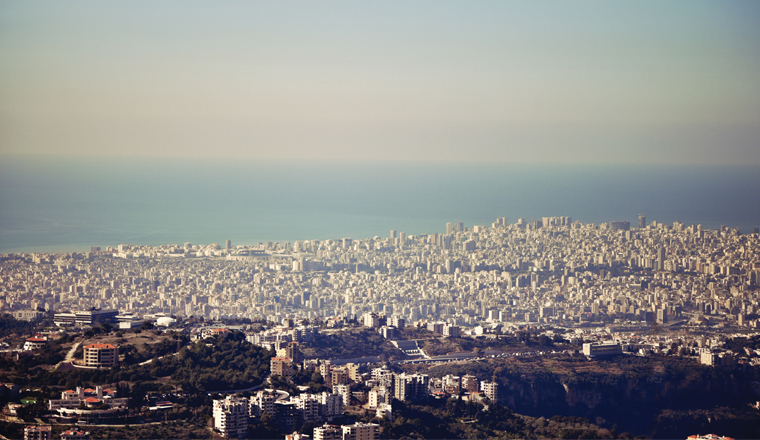Published: April 29, 2015
DCM markets in MENA, Sub-Saharan Africa in record start to year.
Big issues
The Middle East and Africa enjoyed a record start to the year for international DCM deals.
Banks, corporates and sovereigns helped to make a record start to the year for international debt market activity from the Middle East and North Africa. As of early April, international issuance stood at US$16.5bn, the highest level on record and almost double the US$8.4bn recorded during the same period of last year, according to analysis by Dealogic, a data firm.
There were 27 transactions, a jump of 14 on the same period in 2014. The largest share came from the United Arab Emirates (UAE), which accounted for 42% of volume, followed by Israel (14.1%) and Lebanon (13.4%). The largest deal came from Israel’s Teva Pharmaceutical Industries. The company sold €2bn (US$2.2bn) of bonds in late March – a €1.3bn tranche due 2023 and priced with a coupon of 1.25%, and a €700mn tranche due 2027 and priced at 1.875%.
When the deal closed, Eyal Desheh, Teva’s group executive vice-president and chief financial officer, said: “We are very pleased with the success of this offering, which allows us to take advantage of the favourable interest rates in Europe. Together with our recently completed US$1.3bn debt tender offer, this eurobond offering will help us lower our cost of capital.”
Other big deals from across the region included Lebanon’s return to the international sovereign bond market. The dual-tranche issuance raised the republic (pictured)US$2.2bn – US$1.4bn of 15-year paper priced at 6.65% and US$800mn of 10-year paper priced at 6.2%. The deal was the sovereign’s largest ever and attracted an order book of almost US$5bn – it’s using the proceeds to finance some of its foreign-currency debt obligations this year.
Banks were busy too. Rakbank in the emirate of Ras Al Khaimah tapped its US$1bn euro medium-term note programme for US$300mn, a second issuance from the bank after its US$500mn bond last year. Bank of Bahrain and Kuwait raised US$400mn with a five-year issuance to help repay a US$500mn bond maturing this year (our Middle East news section has more on this deal). First Gulf Bank and National Bank of Abu Dhabi each raised US$750mn.
In Africa sovereign issuances from Cote d’Ivoire and Tunisia were among the largest issuances from the first quarter. Cote d’Ivoire attracted orders of some US$4bn for its US$1bn issuance. Tunisia, meanwhile, also raised US$1bn with another four-times-oversubscribed deal – finance minister Hakim Ben Hammouda said that although the country faced economic and political challenges, investors had been “impressed by the progress” made recently. South African power player Eskom and the African Development Bank also raised new funding.
Look to sukuk
One notable trend during the first months of the year was the smaller proportion of international debt deals from the Middle East and Africa accounted for by sukuk. Islamic finance accounted for 21% of deals up to April 8, a 20-percentage-point drop on the same period of 2014 and the lowest share of the market since 2011, when it accounted for just 6%.
That’s not to suggest there haven’t been standout sukuk. The government of Ras Al Khaimah in the UAE raised US$1bn with its first 10-year sukuk, the emirate’s largest ever public issuance. Emirates Airlines sold a US$913mn UK Export Finance-backed sukuk to pre-fund the acquisition of aircraft (see the story in our Middle East news section). The Islamic Development Bank sold a US$1bn sukuk with a 1.83% profit rate, achieving the lowest ever spread for a US dollar sukuk, while Dubai Islamic Bank raised US$1bn with a perpetual sukuk. Analysts still expect a strong year from sukuk, although they note that it could be countries outside of the Middle East that bring the most interesting deals to market. Mohamed Damak, head of Islamic finance at rating agency Standard & Poor’s (S&P), has said the global sukuk market could see new issuance pass US$100bn for the fourth year running in 2015, with deal value potentially reaching as high as US$115bn.
“We think the good economic conditions in core markets where sukuk are being issued will support issuance – primarily in the GCC and Malaysia,” Damak said at an S&P media briefing earlier this year, adding: “The market had a great [2014] with a lot of new issuers and we think this trend will continue over the next few years.” Last year saw debut sovereign sukuk from the UK, Luxembourg, Hong Kong and South Africa.
At Barwa Bank, which acted for the UK on its sovereign sukuk, adviser to the chairman and former chief executive Steve Troop tells EMEA Finance: “We’re going to see more sovereigns and more corporates moving into [the sukuk] space as we go forward. In many ways the big question for the year will be the extent to which non-Muslim nations and non-Muslim entities in Western markets decide they might want to look at sukuk.”


